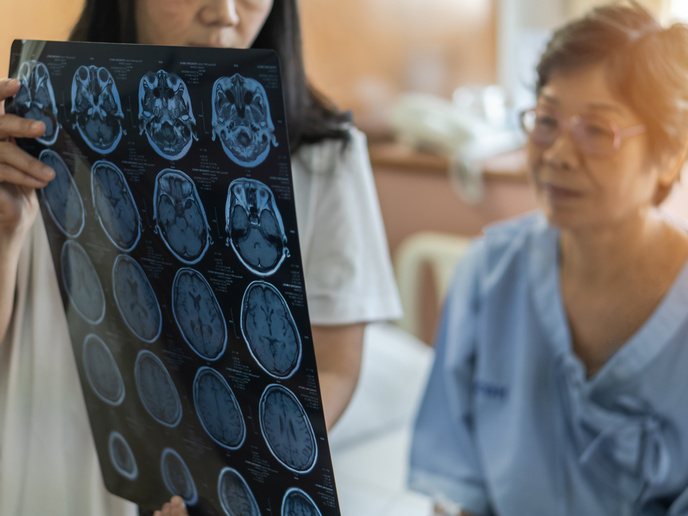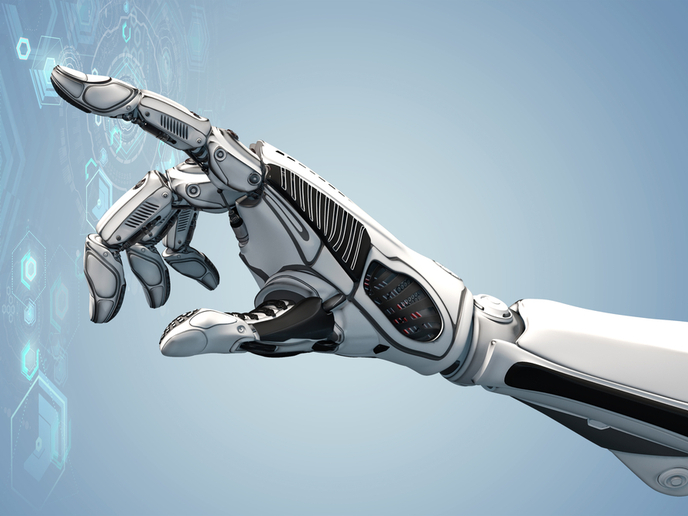First digital therapist enables stroke patients to recover at home
The EU-funded SWORD(opens in new window) project has created a digital therapist that enables an integrated exercise programme via a mobile device that uses body sensors and machine learning algorithms to monitor progress and give real time feedback to patients and clinical teams. ‘The catalyst for the idea came from when my brother suffered a car accident and was in need of intensive physical rehabilitation. At that moment, I realised that if we want to open up access to more sustainable and high-quality rehabilitation services, we have to perform a paradigm shift through the use of new technology. And that’s what we did,’ recalls Dr Virgilio Bento, project coordinator. Since then, scientists have shifted their focus to the millions of people every year that suffer strokes and require ongoing long-term intensive physical rehabilitation treatment. The problem with centre-based physiotherapy for recovery is that the patient must visit the premises, requiring scarce and costly specialist human resources. Despite fierce interest in technologically-based alternatives and an explosion in research efforts, there has been no viable alternative to the traditional centre-based regime until the SWORD system. Robotics solutions for example, are complex, costly and demand constant supervision from a trained clinician. The stroke wearable operative rehabilitation device (SWORD) system – straight to the point The SWORD system with two interconnected parts – the rehabilitation interface and the core – incorporates high intensity, repetitive but personalised exercise. Moreover, it provides feedback on performance and is geared for optimal success. A series of sensors record the motor performance of the patient and sends the data to a mobile device – tablet or mobile phone – giving all-important feedback on performance to the patient and relevant clinical teams. ‘Positive reinforcement comes in the form of visual and audio feedback directly provided by SWORD’s digital therapist,’ explains Dr Bento. When the patient hasn’t got the movement quite right, the clinical team is immediately alerted by the digital therapist so they can act by, for example, reducing the difficulty of the exercise. Randomised placebo controlled clinical trials on the wearable interface proved that intensity of training was increased and probability of errors performed had reduced. The results can be accessed at Nature Scientific Reports(opens in new window). All information is analysed and evidence-based data-driven decisions are derived at the cloud platform, the SWORD core. The analytics framework brings together rehab data streams, pharma data, machine learning algorithms and the physicians’ notes for Big Data production. Armed with data from the global network, the clinician has access to the patients’ past, present and future progress. From patient to institution: Benefits at all levels The obvious benefit to the patient is accelerated progress in terms of physical rehabilitation due to practice. Moreover, the system brings with it a flexibility whereby the patient can be anywhere for treatment, at home or in a group therapy session in the gym. Physicians have the chance to deliver better therapy for their patients and can access a huge system for appropriate data. Care centres could also reach out to more patients without an increase in operating costs. The SWORD system is endorsed, by some of the most important rehabilitation centres in Europe. These include centres in Belgium, Spain, Italy, Portugal and Sweden who are either using the system or recommend it from observation of trials. Together with the largest rehabilitation group in the United States (Genesis Rehab Services), this interest has validated the SWORD system as a global and promising commercial solution in the stroke rehabilitation market. Dr Bento’s vision for the Sword system is to democratise physical rehabilitation treatment for stroke patients enabling everyone in the world, despite their economic position, to have access to high-quality therapy at the comfort of their homes.







